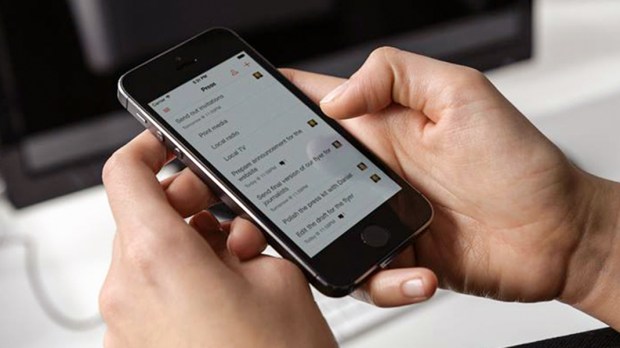Planning your month, saving money, putting together a to-do list, monitoring your income and expenses, or simply trying to go to bed at a designated time in order not to keep on working (or binge-watching that new series on Netflix) can be difficult. It’s not only a matter of keeping track of too many variables, but of building habits. And if old habits die hard, new ones aren’t born easily either.
The good news is that delegating some of those tasks has never been easier — and no, you don’t have to hire a personal assistant. Modern technology allows us to have little robo-helpers taking care of some of the planning and saving and tracking and reminding while we occupy ourselves with what needs to be done in the moment. And while it’s a good thing to build some of these habits on our own (habits lead to virtue, Aristotle said, more or less), using technology to help us in the process is a smart choice. Here are three apps that are quite useful for everyday life …
Todoist
With a name that’s quite self-explanatory, Todoist allows you to build a to-do list to get things done. You might wonder what makes it different from your old post-its, paper lists, or Google Calendar reminders. Well, if Forbes, Mashable, Entrepeneur and TechCrunch are praising its “distraction-free design,” there must be a reason. To begin with, it’s free (but you can pay less than $30 a year for some pretty cool premium features); it allows you to create projects and add tasks to them, to which you can add subtasks (due dates, reminders, flags, etc), and you can set recurring tasks as “weekly” or “every Tuesday.”
Digit
This app “forces” you to save money. As you download it, you can connect it to your checking account (it’s safe, don’t worry) and it will study your spending habits and separate out a bit of money every time you spend some, “for a rainy day.” You can also establish your own saving goals (“$1,000 for Christmas,” for instance) and it will start saving some more money on the side. The first three months are free, and then you’ll have to pay a monthly $3 fee. You can ask your robo-friend to “pause saving” whenever you want to, and you can withdraw your saved money whenever you need it.
LastPass
Passwords can be hard to manage, especially when we’re supposed to change them every season. And the more apps and services and subscriptions you have, the more difficult it gets. LastPass remembers your passwords “so you don’t have to,” as their slogan goes. If it’s good for personal use, it’s even better for businesses, as it prevents security breaches from happening.

Read more:
10 Apps that can improve your prayer life

